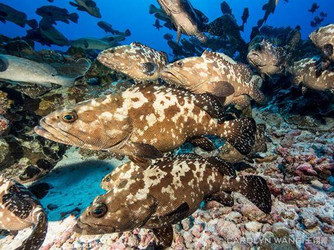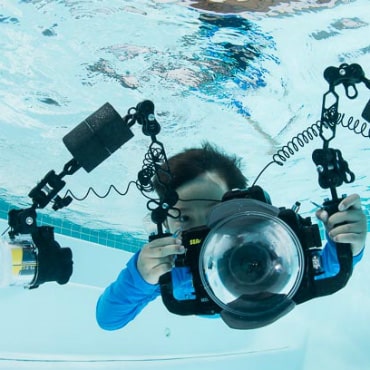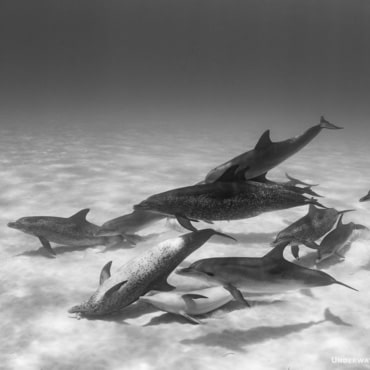Olympus E-M1 review - upgrading from a Sony RX-100
July 22nd, 2014
Olympus E-M1 underwater review
Carolyn Wang discusses her recent upgrade from a Sony RX-100 to the Olympus OM-D E-M1
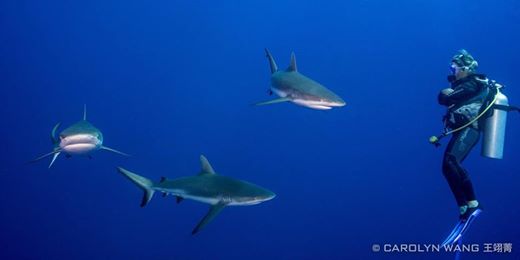
Mirrorless cameras are becoming increasingly popular with underwater photographers both as upgrades from compact camera systems and from large DSLR systems. Bluewater Travel advisor Carolyn Wang recently made the jump from a compact RX-100 to Olympus' flagship mirrorless camera, the OM-D E-M1.
Olympus E-M1 - initial thoughts
By Carolyn Wang
I received my E-M1 camera about a week before departing on a trip with Bluewater Photo to dive Fakarava and Rangiroa, allowing myself to fully immerse in the new system during high-paced shark action. Here are the differences that I noticed from my previous RX-100 setup:
E-M1 Focus speed & Picture Quality
Focus speed and image quality were both noticeably improved. I could crop photos to a higher degree with the E-M1 without noticing pixelation, that I sometimes noticed with the RX-100.
Picture quality improvement is less important than the ability to "get the shot" - and this is where the E-M1 really shined. Because the E-M1 focused faster, the initial first shot is faster. In addition - the flash recycle time is faster. The onboard flash-recycle time of the RX-100 is slow. I could shoot repeatedly with the E-M1, getting 5 shots off in the amount of time I could take 2 shots with the RX-100. This was a huge improvement for shooting action / behavior.
For the RX-100, to shoot frames fast, i had to shoot ambient light only. For ambient light only, the shooting speeds were comparible.
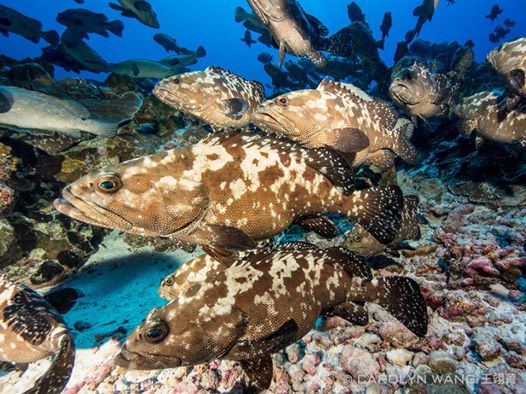
Spawning groupers in Fakarava. Olympus E-M1, Panasonic 7-14mm lens, dual Sea & Sea YS-D1 strobes
Setup Size
The E-M1 camera & housing are larger, but the tray size was the same as my RX-100 setup, so from that standpoint you are still carrying the same amount of stuff. With 2 strobes, it is taking up a similar amount space. If you are shooting the housing only, you would notice the difference in size more.
Nauticam E-M1 Housing & ergonomics
The Nauticam E-M1 underwater housing is fantastic, I am very impressed by the build quality, thoughtfulness and location of the controls. it was great for small hands. It also felt very secure with the leak detector and the vacuum system. Port changes were very easy - I liked how you just had to push the port on without twisting it.
The ability to use the controls on the E-M1 housing was an actually an improvement. Because the housing is wider/larger, the controls were closer to the tray handles, so I found them easier to use.
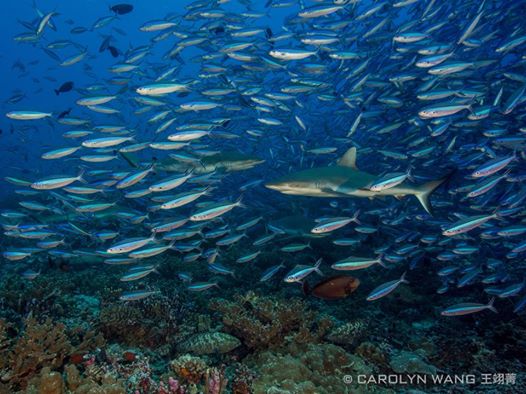
Gray Reef Shark swimming during the grouper spawning.
Micro 4/3 Lens Choices
I used the Panasonic 7-14mm F4 lens for the trip, it was the perfect big-animal and wide-angle choice, and it gave me more flexibility than I would have had with the UWL-04 fisheye lens + Sony RX-100. The drawback with a mirrorless setup is that you have to commit to a lens up front.
For big animals, the ability to "get the shot" was defintely worth losing the flexiblity of having wet lenses and shooting macro or wide on a trip.
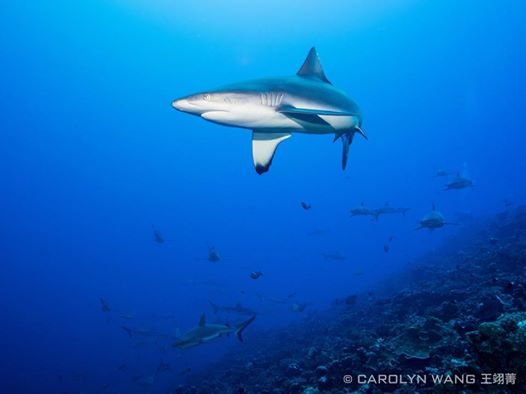
Gray reef shark, with a "wall of sharks" behind it
LCD Screen
I used the LCD the whole trip, I didn't have any issues with it and I liked the tilted angle of the LCD, I thought it was worth the additional space in the Nauticam housing to support that.
Conculsion
I only picked up the housing 1 week before the trip. I was learning the setup on the trip, and I was able to get great shots without much of a learning curve. I am definitely a fan!
Further Reading
Olympus OM-D E-M1 Shooting Guide
Nauticam E-M1 Housing for Olympus OM-D E-M1
Best micro-four thirds lenses for underwater photography
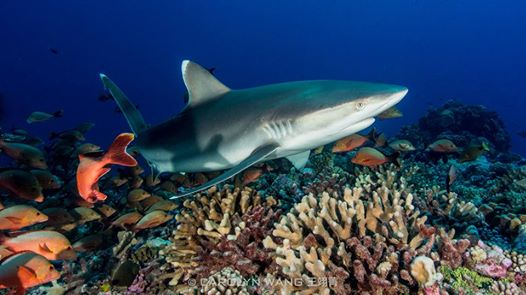
Silvertip shark in Rangiroa, Tahiti
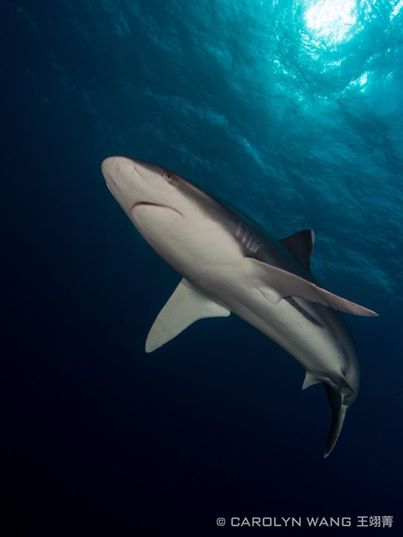
Gray reef shark and sun

